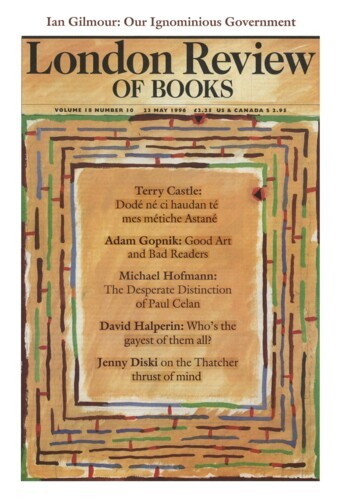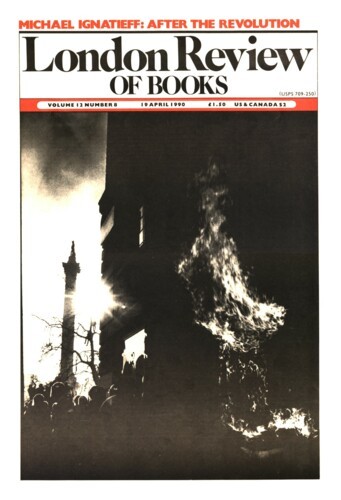Do-It-Yourself
George Steiner, 23 May 1996
A theory becomes ‘classical’ when it is thought to have been understood, which is to say left behind or constructively challenged. Where a theory is forceful enough, there is, inevitably, a sense in which it consumes its object and, thus, itself. These are Hegelian concepts and they bear directly on the theory of the evolution of literary forms which Lukács derived critically from Hegel. Roughly put, Hegel attached the origin, maturity and decline of the major genres in Western literature to corresponding epochs of consciousness. These, in turn, generated and were generated by (the dialectic) historical, ideological and social realities. The heroic epic enacted conditions of life and perception of an archaic social order. It yielded to the conflicts between individuation and society, between the familial and the political represented in drama. Out of the erosion of the mythological-polytheistic or theistic components in drama came the novel.





